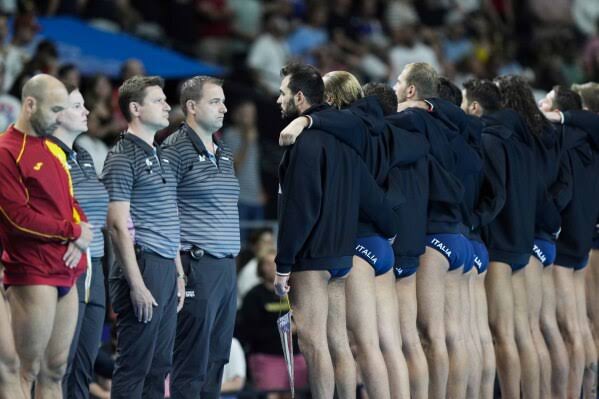
Court Dismisses Italian Water Polo Ejection Protest”

In a recent development in the world of water polo, the court has dismissed Italy’s protest regarding the ejection of Francesco Di Fulvio during their match against Greece. This decision has sent ripples through the water polo community, sparking debate over the interpretation of rules and the management of player conduct in high-stakes games.
The incident in question occurred in the third quarter of the match, where Di Fulvio was ejected after receiving his third penalty. This ejection allowed Greece to capitalize on a power play, ultimately leading to a pivotal goal that influenced the course of the game. Italy’s coach, Alessandro Campagna, immediately contested the decision, arguing that Di Fulvio’s actions did not warrant such a severe penalty and that the ejection was disproportionate to the foul committed.
Campagna’s protest was grounded in the belief that the ejection unfairly penalized Italy, given that the team’s performance was significantly impacted by Di Fulvio’s absence. He contended that the player’s removal was not justifiable under the existing rules, and sought to overturn the decision to rectify what he saw as an injustice.
Despite these arguments, the court has upheld the referees’ decision. According to the court’s ruling, the ejection was consistent with the rules governing player conduct in water polo. The ruling emphasized that Di Fulvio’s actions had endangered the safety of an opponent, justifying the referees’ decision to remove him from the match. This interpretation aligns with the broader goal of maintaining player safety and ensuring fair play, even if it means making difficult decisions in the heat of the game.
The court’s decision has been met with mixed reactions. Supporters of Italy’s protest argue that the ruling undermines the integrity of the sport and may deter players from pushing the boundaries of their performance for fear of excessive penalties. They believe that a more nuanced approach could have been taken, one that considers the context and the impact of the ejection on the overall match.
On the other hand, many within the water polo community have defended the referees’ decision, praising their commitment to upholding the standards of sportsmanship and player safety. They argue that by enforcing strict penalties for actions deemed dangerous, referees help preserve the integrity of the game and prevent potential injuries. In their view, the court’s ruling reinforces the importance of adhering to rules designed to protect players and ensure fair competition.
The ramifications of this decision are significant for Italy, particularly in the context of the ongoing tournament. With Di Fulvio, one of their key players, sidelined, Italy faces an uphill battle in their upcoming match against Spain. The absence of such a crucial player could impact the team’s strategy and performance, potentially affecting their chances of advancing further in the tournament.
As Italy prepares for this critical match, the team must adapt to the new dynamics and make strategic adjustments to compensate for the loss of Di Fulvio. The outcome of their upcoming game against Spain will not only influence their tournament trajectory but also serve as a test of their resilience and ability to overcome adversity.
In the broader context, this incident highlights the ongoing debate surrounding the enforcement of rules in sports and the balance between player safety and competitive fairness. The decision underscores the challenges faced by referees in making real-time judgments and the impact such decisions can have on the course of a tournament.
As the tournament progresses, all eyes will be on how Italy manages to navigate these challenges and whether they can still achieve success despite the setbacks. The situation also prompts reflection on how sports governing bodies and courts interpret and enforce rules, ensuring that the spirit of the game remains intact while addressing the complex issues that arise during competition.







